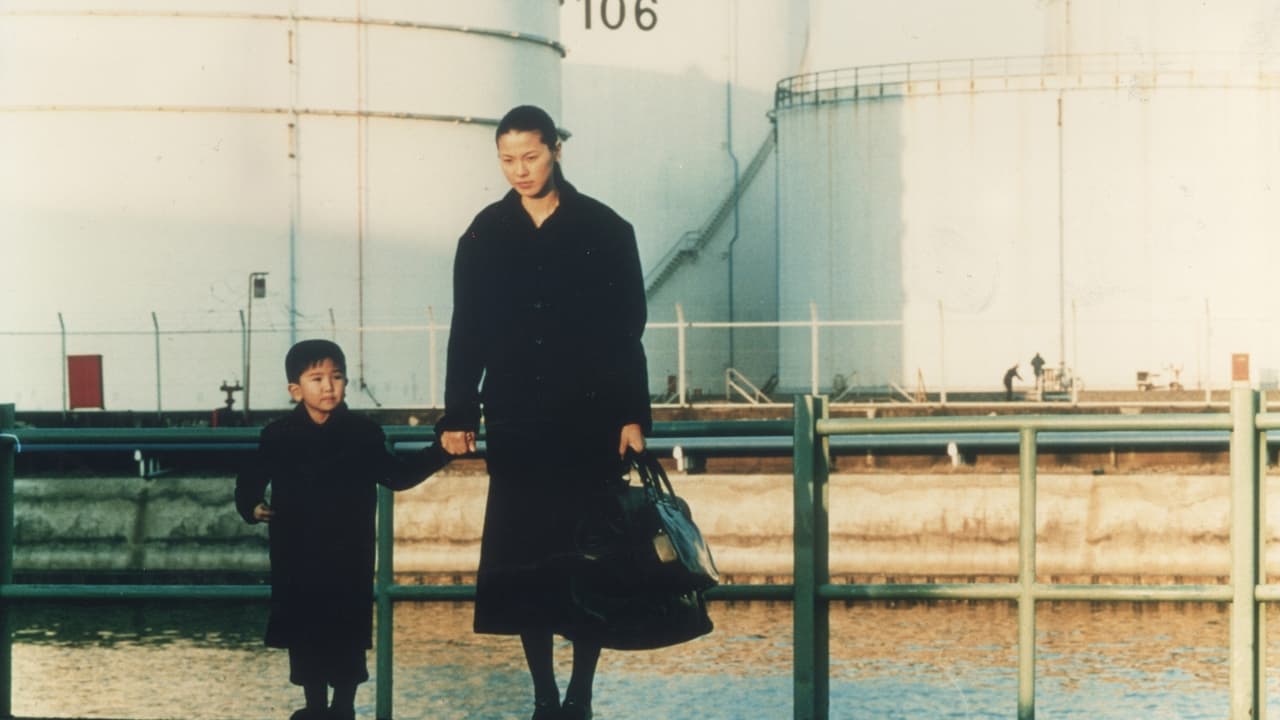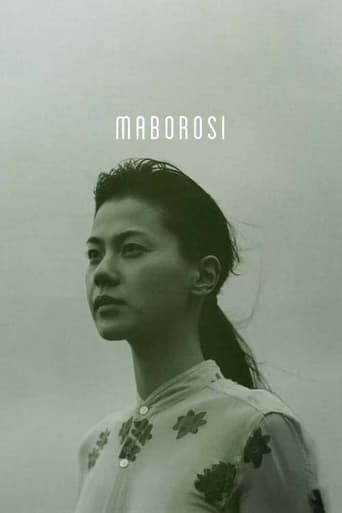

When I first started on the path to learn about cinema, a friend noticed and started giving helpful suggestions and useful information. He also gifted me a copy of "Maborosi" (1995), by Kore-eda Hirokazu, known in the US as Hirokazu Koreeda. I finally found the right time to sit down and watch this film, and all I can say is, what a beautiful gift it was.This film is a work of art, a slow painting of light and shadow, of the play of seasons, and the journey one young woman makes from joy in life to sorrow in death and back again, sort of. Ikuo and Yomiko are childhood friends who grow up together, get married, and start a family. Through a tragic accident, Ikuo is killed and Yomiko and her infant son must go on without him. She remarries and attempts to find answers to her unanswerable questions in an isolated seaside village with another widower and his young daughter.There is poetry in the cinematography of this movie and this story. There is symmetry and slow, rhythmic movement, extreme long shots, many with no movement at all. They give one a moment to pause and reflect. It is completely opposite the whirlwind we call life of alarms, and soccer practices, and time cards, and business lunches. "Maborosi" has very little dialogue, but it works because words aren't always necessary or even desired. There are shared moments, looks between one another, glimpses of daily life, the sounds of the surf, and a few words which go a long way. Stairs, trains, and windows are predominant themes. It is a fascinating glimpse into rural Japanese culture. Finally, the soundtrack is brilliant and is the perfect emotional backdrop to the story. It was so sad, but not without moments of hope. I'll definitely revisit this gem.
... View MoreI first liked the silence in this movie, but later I decided that it tells us about speechlessness, especially connected with the occurrence of sudden death. As an European, or simply feeling with Yumiko, I often said to her by myself "lets go and cry the hell out", but she didn't or it wasn't shown and I interpret this as Japanese behavior. She seems to be very smart and holds her feelings back. She adapts to the situation and won't allow any grief to take her over. But sometimes - I personally think - you should let you been overpowered by grief and sadness, so that the inner pressure can find a valve. Otherwise you could be damaged. When Yumiko visits her mother after a time, she looks like she came over. But she didn't. The barkeeper in the little coffee/tea shop tells her that he had seen her husband just before the incident, and he says that he looked and behaved as usual. This brings back the whole thing to Yumiko, and I felt a big power in this scene. I feared she would go back to their common apartment unprepared, and so she does, and so she is punished by the unmanaged remnants of her lost past.I liked the look of the movie, but I could not adore some painting-like stills or wonderful shots. Therefore I have seen too many movies in such a style, especially from Japan or Korea. And I don't give much about the style when I see such a movie, because a deeper going movie doesn't need style to reach me. I liked that the pictures weren't so beautiful, as in other Japanese productions. More or less, I had a good impression to see real places and follow real people in real life. Real life is often dull, gray or sad, especially when you lose your beloved partner. The reason is not that important, because what lasts is the partner's absence.Thus the causing of Yumikos first husbands' suicide is not important, and it is clear from the beginning that she never will find out. It is a constructed event that should lead us away from every disturbing explanation. The try to explain it on the end with some mystical light is a crutch, formed from helplessness. Instead, her new husband - how he lost his former wife stays in the dark - should have had a serious talk with her, about hers and his feelings, about life and death, about their inner movings. Isn't it strange that she only wants to speak with him when he is very drunken and not able to answer ? I identify the lack of discussion, the lack of review (which is fascinating for many viewers of the movie) as the real sadness, and the movie wants to tell about what happens if everybody keeps calm as required in Japan - nothing spectacular, but probably nothing enjoyable.We are helpless against fate - more modern: statistics - and helpless against the fragile illusion of a stable life and continuity, but not with our inner worlds. Being together means also sharing thoughts, not only relatives or day-work.
... View MoreWow, there are some pretty extreme reviews of this film. I've read both the LOVED ITs and the HATED ITs, and I agree with both. So what's the deal? Is this the best film ever, or should it be used as a torture device at Guantanamo Bay?All I can say is that I experienced moments of both extremes, but in the end I was unsatisfied. It begins provocatively with an interesting flashback, told very poetically through high contrast shots with deep perspective. This sets the tone very nicely and even manages to inject some suspense into the film. But the movie's downfall is excessive, gratuitous repetition in the hours that follow.The plot develops suddenly within the first 30 mins or so. From then on, don't expect much of a story because the rest is a highly impressionistic mood-type piece with little dialogue and less action. That's not necessarily a bad thing; directors like Ming-liang Tsai (THE HOLE) have pulled it off successfully, but what irked me in this case was the gratuitous repetition. Yes, I know I said "gratuitous repetition" already. Good to see you're paying attention ;)I counted 5 scenes (long ones) of the heroine sitting in a dark room staring out a window with a ghostly light illuminating her face. It was stirring the first time, but after a few more times it's simply redundant & anticlimactic. Another great image--used powerfully at first but losing its charm after the 3rd or 4th beating over the head--is a far shot of a body of water where our eye is drawn to the reflections of people on the surface. OK, Koreeda, we get the picture; the film is about the contrast between shadows and bright light, reality and deceptive illusion, that which we do not understand vs. that which we *think* we understand. If it were presented more concisely, I would have loved it. But did he really require 2 hours to say it? And if so, could he not have explored it more deeply, rather than leaving us with a somewhat shallow climactic monologue at the end? (I call it a 'monologue', but actually it's only 2 or 3 sentences which summarize the whole point of the film.)In the end, my impression of MABOROSHI is much like my impression of Koreeda's later film AFTER LIFE (which I think is much better than this); the philosophy is very interesting, there are certain poetic moments that will captivate you, but when the film is over you get the feeling that you've just read a haiku. Nothing more.
... View Morethis is hard to get movie if you have not experienced the death of a close friend or family member. it is entirely visual but reflective of mood - the deep void that one retreats to when a lost happens.when watching a film, the mood of the auther and audience must match to some degree for connection to happen. and for this film, you must be at least 80% close or you will be bored, lost or disinterested.each scene provide space for you to think, feel, reminisced - not necessary what is happening in the story - maybe in "your" own story. there is a little bit of dialogue in the end to summarize everything. a masterpiece with great cinematography that reflects on one singular emotion -mourning.
... View More